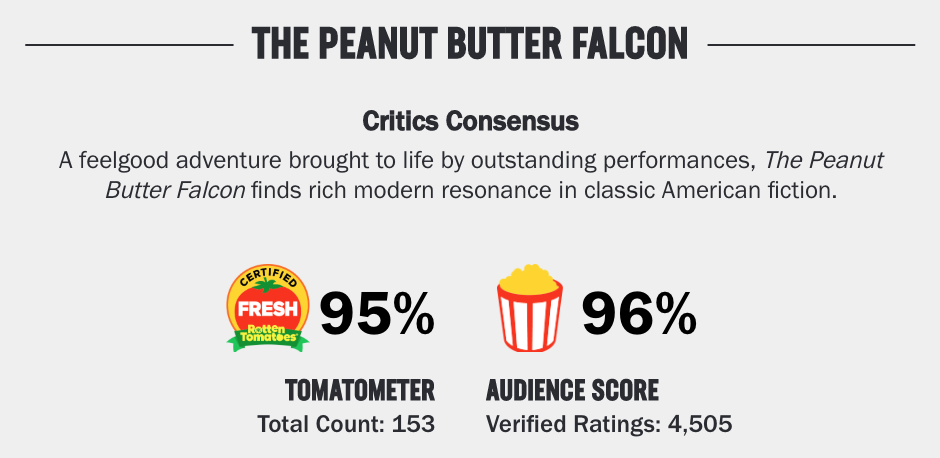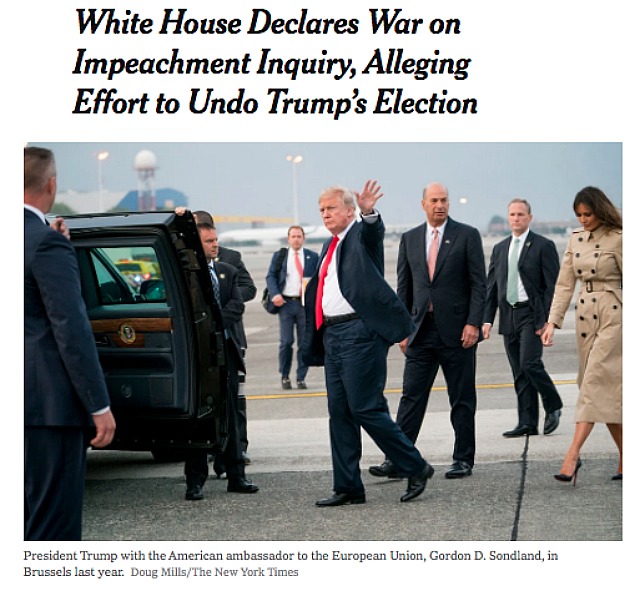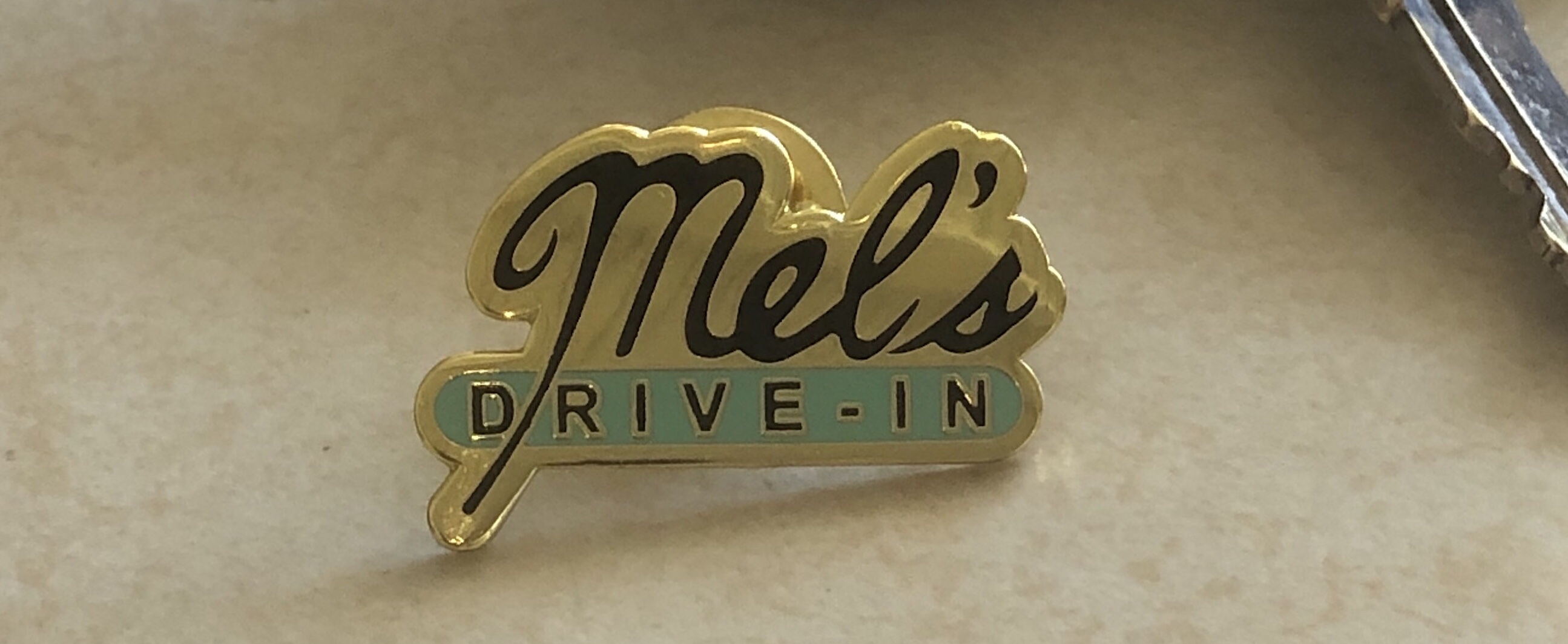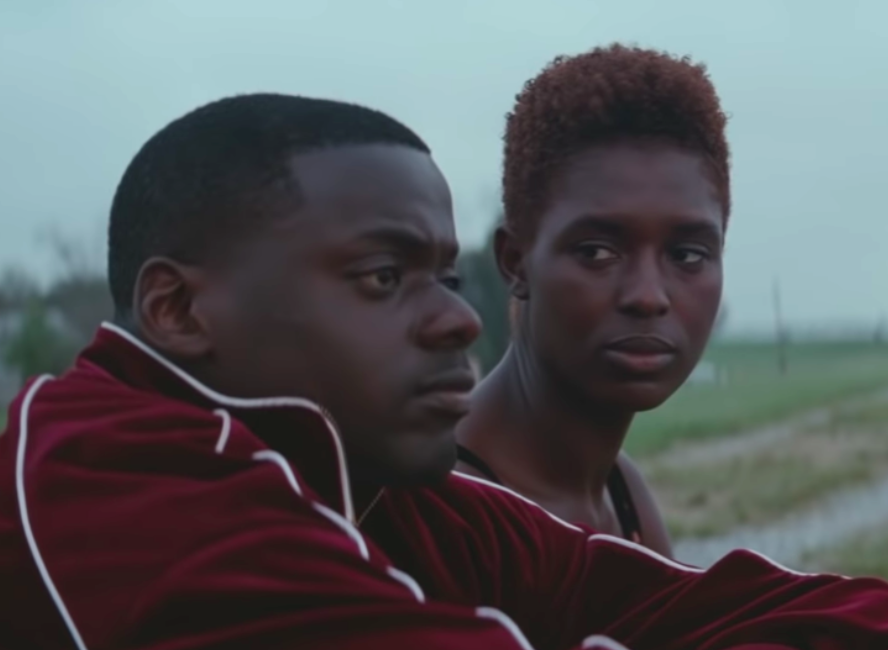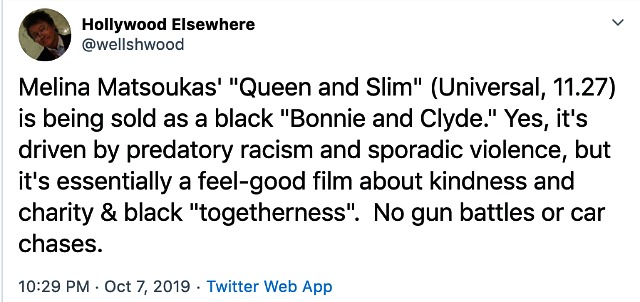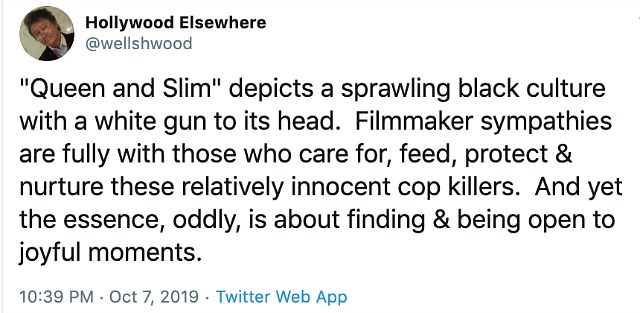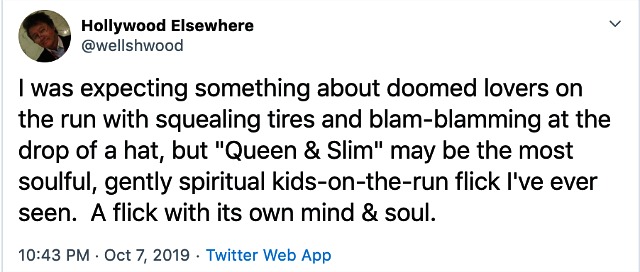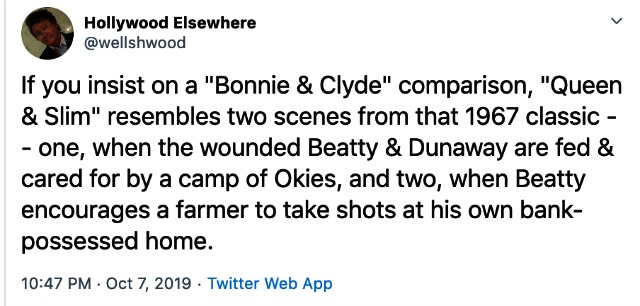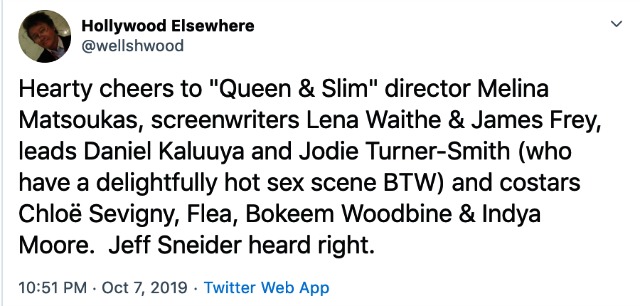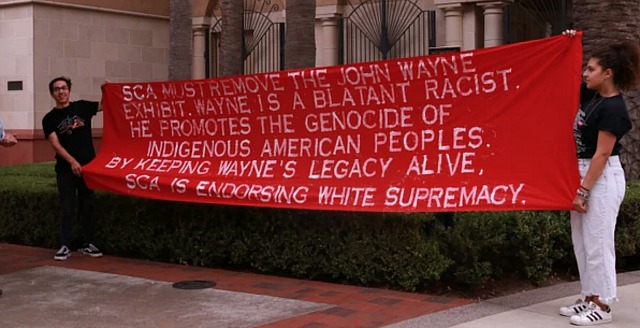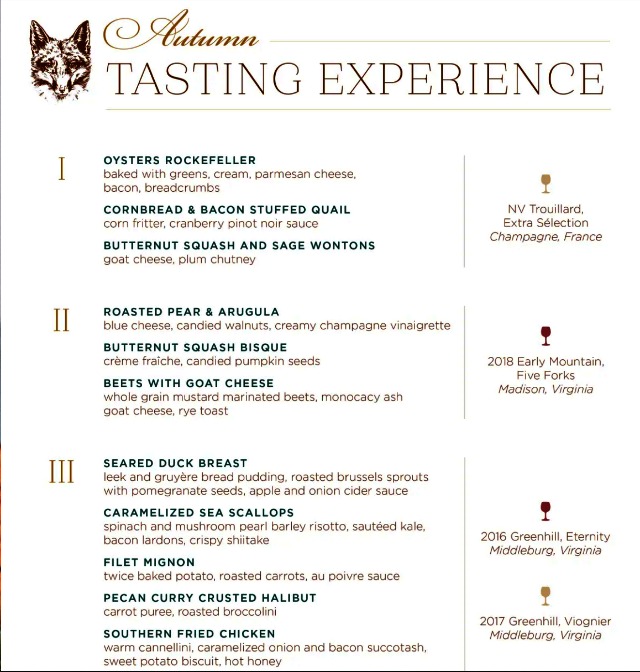I didn’t get into Martin Scorsese‘s recent assessment of the superhero (mostly Marvel) genre because he was only saying what any semi-intelligent film lover thinks, aside from the fact that certain Marvel films are, by the standards of the genre, seriously impressive (the first Iron Man and Ant Man, the first two Captain America films, Avengers: Endgame, etc.). My reaction was, “Okay, yeah…and?”
Scorsese: “I don’t see [superhero films]. I tried, you know? But that’s not cinema. Honestly, the closest I can think of them, as well made as they are, with actors doing the best they can under the circumstances, is theme parks. It isn’t the cinema of human beings trying to convey emotional, psychological experiences to another human being.”
Two days ago Samuel L. Jackson had this response: “That’s kind of like saying Bugs Bunny ain’t funny. Films are films. You know, everybody doesn’t like his stuff either. I mean, we happen to, but everybody doesn’t. There are a lot of Italian-Americans that don’t think he should be making films about them like that. Everybody’s got an opinion, so it’s okay. It’s not going to stop anyone from making movies.”
HE to Jackson: People like what they like and are obviously entitled to their opinions…of course. And I don’t “like” each and every Scorsese film, by the way. I’ve never been a fan of Kundun, and The Age of Innocence and Bringing Out The Dead never quite rang my bell. But any friend, associate or acquaintance of Jackson’s who says he/she doesn’t “like” Scorsese’s films in general is an idiot, no offense.
And that alleged Italian-American complaint…seriously? The American Italian Anti-Defamation League thing is a half-century old, and there’s hartdly an Italian-American living in the northeast corridor who hasn’t accepted the mob association aspect as part of the price of doing business. Vito Corleone‘s photo is hanging on the wall of God knows how many Italian restaurants, Nino Rota‘s Godfather theme is often heard on the sound system, and everyone loves Joe Pesci‘s “what, I’m a clown, I amuse you?” riff from Goodfellas.
